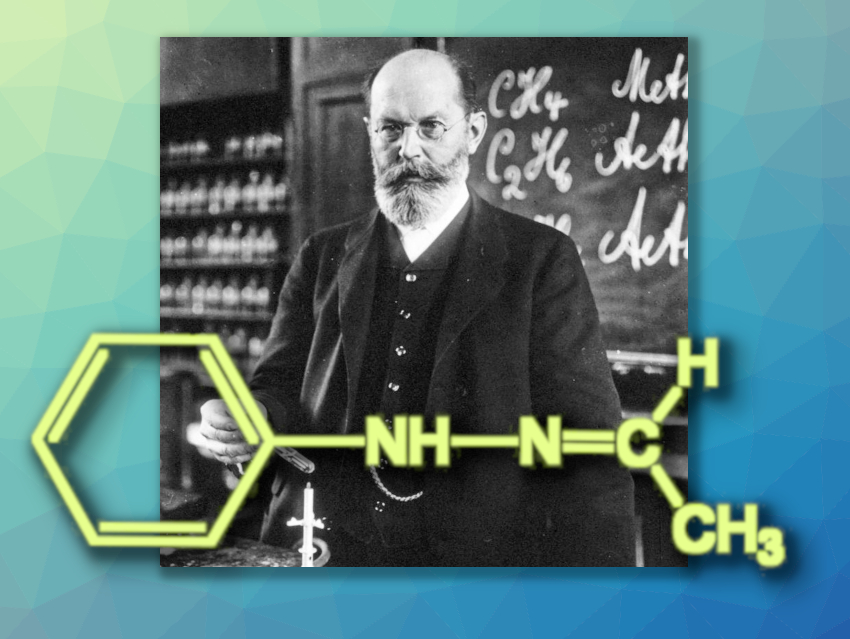Emil Fischer and His Phenylhydrazine
Fischer’s countless scientific discoveries made him the leading chemist of his time, and the discovery of important pharmaceuticals like the sleep aid Veronal also made him popular with the general public. His designation as “Excellency” by Emperor Wilhelm made him an academic superstar.
Emil Fischer demanded a great deal of dedication from his colleagues and was described as uncharitable, aloof, and overbearing in his personal interactions. His most dreaded reaction was a silent “wing-flapping” when something went wrong for a colleague in the laboratory. His examinations were more like interrogations and afterward, it was clear to every examinee that they actually knew nothing.
The discovery of phenylhydrazine proved to be a scientific stroke of luck, if only because of the smooth reaction of aldehydes to the usually splendidly crystallizing phenyl hydrazones. This even made it possible to convert usually syrupy sugars into well-defined derivatives with clear melting points. This was an important requirement for determining the structure of glucose, a milestone in the evolution of chemistry [1] and a step on the way to the Nobel Prize for Chemistry in 1902.
Fischer paid a heavy price for his scientific success. His regular handling of phenylhydrazine led to chronic poisoning that often forced him to be absent from the laboratory for protracted stays at health resorts. It is highly probable that phenylhydrazine was the cause of the inoperable intestinal carcinoma diagnosed in 1919. Fischer spared himself from prolonged illness by ending his own life with potassium cyanide. Fischer described his chronic illness in a personal letter to his doctor with permission for publication after his death [2].
References
[1] K. Roth, S. Hoeft-Schleeh, 3.0.CO;2-N” target=”_blank”>https://doi.org/10.1002/1521-3781(200212)36:6<390::AID-CIUZ390>3.0.CO;2-N
[2] L. Lewin, Eine toxikologische Erinnerung an Emil Fischer, Naturwissenschaften 1919, 46, 878–882. https://doi.org/10.1007/BF01485719




